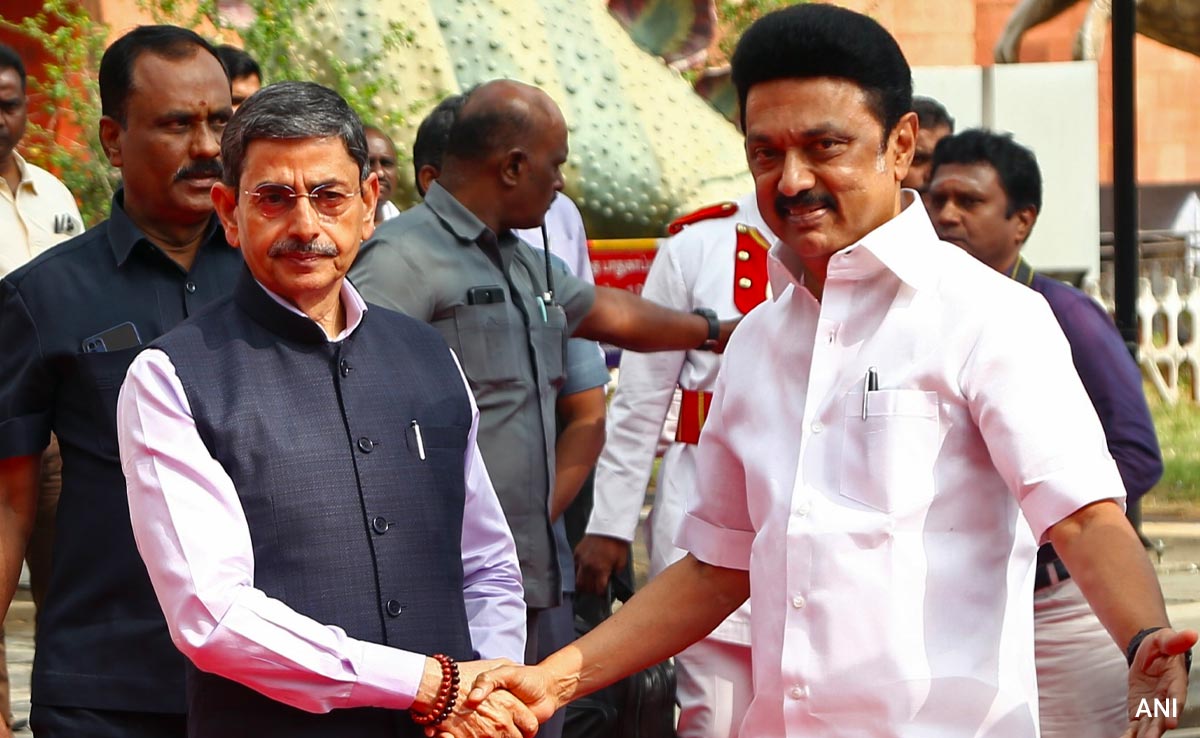
Tamil Nadu assembly today unanimously passed the 10 bills that were cleared but returned by Governor RN Ravi. The move came after Chief Minister MK Stalin put forth a resolution to revive the bills that RN Ravi had sent back without giving any reasons.
While 2 bills each were adopted by the House in 2020 and 2023, six others were passed last year. The bills aim to clip the powers of the Governor by elevating vice-chancellors of state universities to the position of chancellor.
Though AIADMK supported the move the party walked out over another issue. The BJP, which has four MLAs too, walked out.
Stalin, in a stinging attack on Mr Ravi, told the assembly that withholding assent without any reason was unacceptable.
“He returned the bills due to his personal whims and fancies… it is undemocratic and anti-people to not give assent. The Governor can’t withhold assent if the bills are passed in the assembly again and sent to him,” he said.
Stalin also alleged that non-BJP-ruled states were being targeted through Governors, apparently by the Centre.
The tussle between the Tamil Nadu Raj Bhavan and the ruling DMK has been going on over the last two years. RN Ravi a BJP Government appointee had returned the NEET exemption bill after much delay and sent it to the President for assent only after the assembly passed it for the second time.
He had even skipped reading portions of the official speech given to him during his assembly address. He avoided reading names of leaders including Ambedkar, Periyar, Kamaraj, Annadurai and Karunanidhi. The assembly however adopted a resolution to not record his deviated speech.
In the past, Gujarat had made the Chief Minister as the Chancellor of state universities for some time. Several states have also clipped powers the Governor in appointment of Vice Chancellors in his or her role as Chancellor.
Prime Minister Modi is the Chancellor of the Visva Bharati University. When asked about similar changes aimed by Tamil Nadu lawmaker, BJP MLA Vanathi Srinivasan said “PM Modi was made the Chancellor for a special purpose by a special act. What’s the need in Tamil Nadu when the Governor appoints vice chancellors according to norms?”.
By hastily returning the bills before the next hearing by the top court, the Raj Bhavan attempted to give an impression that no bill is pending. However the ruling DMK wants to preempt it by swiftly passing them again and presenting the to the Governor so he would have no choice but grant assent.
Citing inordinate delay, the state also seeks a direction from the Supreme Court for a timeframe to be given to governors on giving assent to bills.
Accusing the Governor of acting like an RSS/BJP agent the ruling DMK alleges the constitutional head who ought to abide by the aid and advise of the state cabinet is attempting to SCUTTLE the state’s development by not giving assent to bills, undermining the elected government.
Several opposition ruled states too have moved the top court on similar charges against their Governor’s aftet which the bench headed by Chief Justice Chandrachud had taken a serious view of the issue.
Opposition ruled states hope the court would also take note of the centre’s failure to address this issue and the President too not intervening despite SOS by states.
The Supreme Court on November 10, while hearing a petition filed by the Tamil Nadu Government, expressed “serious concern” over the delay by governors in giving assent to the bills passed by the state assemblies.
The petition filed by the Tamil Nadu government sought to declare that the inaction, omission, delay and failure to comply with the constitutional mandate by the Governor of Tamil Nadu/ first Respondent qua the consideration and assent of the bills passed and forwarded by the Tamil Nadu State Legislature to him and the non-consideration of files, Government orders and policies forwarded by the State Government for his signature is unconstitutional, illegal, arbitrary, unreasonable besides malafide exercise of power.
The court has, however, sought a response from the Centre on the allegations against the Governor.




